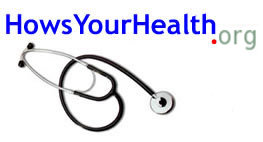
© 1997-2023 FNX Corporation and Trustees of Dartmouth College. All Rights Reserved.
CHAPTER 13: Violence and Abuse
Contents
If you think about getting hurt or dying, you may think about car accidents and cancer. Yes, accidents are the most common causes for teenage death. But thousand commit suicide or are murdered each year. Over 100,000 are victims of violence each year and often need medical help for the injuries.
Sexual abuse is really serious. We are not too sure how often it happens, but we do know that it happens to girls about twice as often than to boys.
Since you can be affected by violence and abuse, this section discusses these problems and ways to avoid or correct them. Even if you are not directly involved, many of your friends may be. You may be able to share this information with them.
The Causes of Violence
Of teens who die from violence, about one in three are killed by a family member, one in three by a friend or acquaintance, and another one in three by a stranger or another gang member. These numbers show that death and violence are most likely to be caused by someone you know.
Most persons are killed by guns. About half of the homes in this country have guns in them. These numbers show that guns in the home are dangerous.
Another cause of violence and abuse is the adolescent who is a regular witness to violence. This can include the more than 10,000 acts of violence that many teens typically see yearly on television and in movies. But of special concern is the witnessing of violence that occurs in the home.
In families, adolescents are as often struck as are their younger brothers or sisters. Girls are hit more often than boys. The "hitter" will say that the teen must have deserved it, or that the teen must have hit first.
Within a family abuse and violence may never be talked about, even though it happens a lot. Just observing violence creates a serious health problem for the observers who watch their mothers being beaten by their fathers or their brothers and sisters being struck. If you watch again and again, you accept violence and abuse as the way to solve problems. You will be quicker to attack someone. Violence causes violence; abuse leads to more abuse.
How Does Violence Change Us?
Being a victim of violence or being abused by a family member directly affects the way we feel and the way we look at the world. Right after an attack most persons feel anxious, worried that it might happen again; they feel vulnerable, powerless, and not in control. Even after one serious episode of violence, many persons will have nightmares, anxiety attacks, or want to withdraw into themselves.
The long term effects of abuse and violence will cause many persons to feel nervous or anxious. Some will have headaches or stomach pains as a way of their body showing that they are upset and under a lot of stress. Depression (feeling very sad) often allows them to mentally defend themselves against further attacks. Others will have panic attacks where they suddenly feel their heart beat fast and they get very shaky. And other persons have sudden fears, flashbacks to the events, nightmares, numbing and loss of feeling, reduced interest in usual activities, anger and aggressiveness, and difficulty concentrating and doing well at school.
Many may try alcohol or drugs as a way to escape their feelings and to feel powerful. But this works only for a very short time. They will take more and more drugs and alcohol, but the feelings of power will get less and less.
Adults who abuse usually feel badly about themselves, mistrust others, are aggressive, and have trouble keeping relationships with others. These are also all characteristics of adolescents who were victims of violence. Problems of youth will turn into similar problems and become problems of adults. Remember: Violence causes violence; abuse leads to more abuse.
What Can You Do About Violence?
First , recognize that being a victim or "watcher" of violence and abuse is not healthy. It will change you for the worse. You may worry about what will happen if you speak up. But keeping it inside is even more scary, because the problems can and will continue.
Violence leads to more violence; abuse to more abuse. You can break this cycle. You start by seeing what is happening and getting help.
Second, remember that no one---- No one---- has the right to physically hurt you. No one should have that kind of power. If you can't talk to another family member about it, talk to a minister or priest, or to a school teacher or counselor, or to a doctor or nurse. What you say will be taken seriously. You should not have to live surrounded by violence.
Third, think about ways to deal with problems without the use of violence. (Read the Chapter About Problem Solving.)
Who Can Help You?
Try talking to an adult whom you admire and trust. Remember, few adults have forgotten the importance of the help they received from adults when they were teenagers.
This adult could be a family member, a minister, a teacher, a counselor, a doctor, a nurse, a police officer, a crisis phone call center, or any adult you can trust. When the situation is really bad, the police should be contacted.
We have tried to make the How's Your Health error-free. However, those involved in its preparation can not warrant that all of the information is accurate and complete. When you use How's Your Health as a guide for your health and medical care, be sure to discuss any questions about it with your doctor, nurse, or other health care worker.
To choose another chapter, click the 'BACK' button.
Last reviewed: January 2023 © 1997-2023 FNX Corporation and Trustees of Dartmouth College. All Rights Reserved.